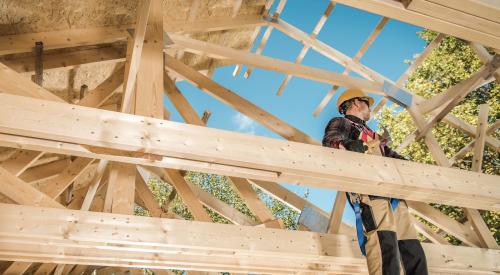| Robert Mitchell, NAHB President
|
American builders and their customers have shouldered the burden of cost increases resulting from a trade pact called the Softwood Lumber Agreement. The good news is that the agreement is fast approaching its expiration date, and like a carton of soured milk, is likely to be yanked from the shelf.
It may be hard to fathom that a trade agreement penned by our own government has had an adverse effect on American home buyers, but judge for yourself. More than a third of all lumber used in this country comes from our northern neighbor, and restrictions on timber sales from U.S. forests have increased our reliance on imports.
The quota has contributed to price swings of up to 50 percent within a matter of months. NAHB estimates that every $50 increase in the cost of 1000 board feet of framing lumber increases the cost of building a home by $1000.
Thankfully, the agreement is set to expire in March 2001, and indications are favorable that it won’t be renewed. U.S. Special Trade Ambassador Peter Scher sent a letter to Canada’s Minister for International Trade, Pierre Pettigrew, stating:
"We believe both the governments of the United States and Canada should get out of the business of regulating lumber trade and, therefore, we are not inclined to support an extension of the Softwood Lumber Agreement."
More recently, a bipartisan group of nearly 50 U.S. Representatives, led by Congressmen Jim Kolbe (R-Ariz.) and Steny Hoyer (D-Md.), on February 16 introduced a "Sense of Congress" resolution calling for termination of the agreement on its expiration date and opposition of any similar pact in the future.
Despite the growing consensus against renewal, some U.S. lumber producers are calling for a "bridge" agreement that would, for all practical purposes, amount to an extension of the quota agreement. That’s why home builders remain watchful of developments regarding this issue. There can be no mistake about the need to safeguard affordable prices and appropriate supplies of such a critical component.











